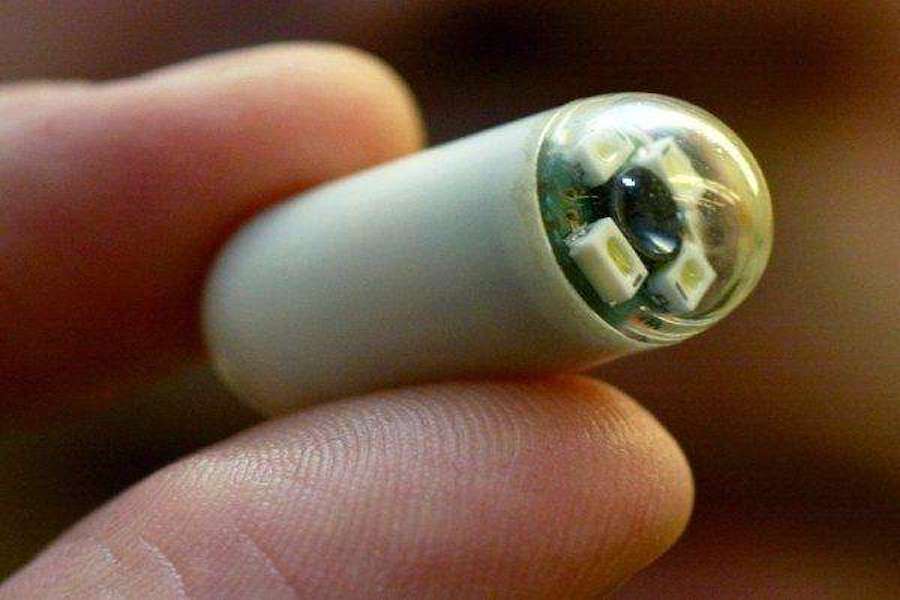
Image from the web
According to a research report issued by Market Research Institute of the United States, the global smart pill market has a market value of $1.56 billion in 2014. In the next 10 years (2014-2024), the market will develop at a high speed, and it is expected that the 2014-2020 forecast period will be 16.16% annual compound growth rate (CAGR) growth will reach 3.83 billion US dollars by 2020; and in 2020-2024, the market will further develop at a high speed, CAGR will reach 23.7%, and in 2024 reached 8.98 billion US dollars.
Coincidentally, CB Insights also predicted that while various technological applications such as artificial intelligence, new retail, and smart cars change human life, smart drugs are also a non-negligible member, creating more possibilities for improving the efficacy rate.
A smart pill is a sensor that contains a sensor like a "micro-camera" that releases a drug component in the patient's body and feeds it back to the patient. Typically, smart pills are used to replace endoscopic testing procedures.
In November last year, Abilifymycite, the first smart drug developed by Otsuka Pharmaceutical Co., Ltd. and California Proteus, was approved by the US Food and Drug Administration (FDA) to open the smart pill stage spotlight.
Going back to the beginning, in fact, as early as 2008, the prototype of smart drugs has emerged. Dutch scientists have developed a capsule-like pill containing a microprocessor, battery, radio, pump and drug reservoir to treat gastrointestinal diseases such as Crohn's disease or colon cancer.
In the pharmaceutical and medical technology arena, many players are seeking to occupy a place in the smart pill market. Often, these companies are divided into "two factions": the development of capsules for endoscopes and the establishment of connected, swallowable drug tracking systems. In terms of geographical distribution, North America has the largest market in the country. Some players selected by E-Europe are as follows:
Medtronic
Medtronic's SmartPill Capsules measure pressure, acidity, temperature and transit time through the human gastrointestinal tract. Using this data, the system can assess the user's gastrointestinal function and provide diagnostic information such as gastric emptying time and pressure patterns.
Medtronic “tortures†its system to be the only dynamic test that provides complete gastrointestinal transport. The company's sensor-based smart capsules replace the cumbersome state that previously required multiple tests, including gastric emptying scintillation scans, radioactive opacity markers, and whole bowel scans. And because the symptoms of the upper and lower digestive tract often overlap, this technique can help locate abnormalities in certain parts of the gastrointestinal tract.
CapsoVision
This private medical device developer has developed miniature imaging technologies such as its CapsoCam Plus swallowable small bowel endoscopic imaging capsule.
CapsoVision's CapsoCam Plus received a 510(k) license from the FDA (United States Food and Drug Administration) in 2016. This is the third generation of this California-based company, but it was first commercialized in the US.
The technology helps clinicians discover abnormalities in the small intestine by providing a 360° panoramic view of the small intestine. The system includes a capsule endoscope, a retrieval kit, a data access system, and software.
Fresh White Garlic,Hardneck Garlic,White Garlic Plant,Fresh White Garlic In Bulk
shandong changrong international trade co.,ltd. , https://www.changronggarliccn.com